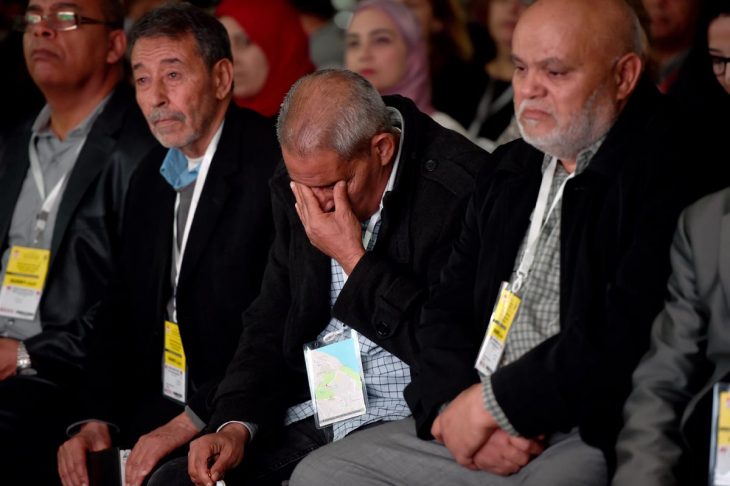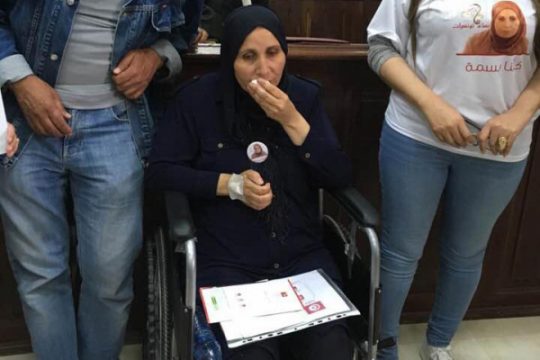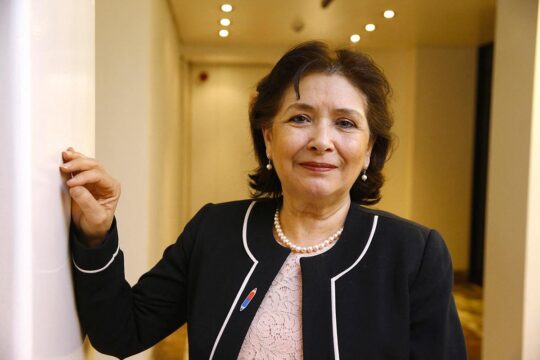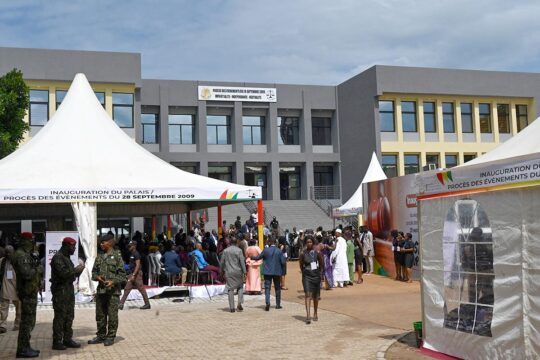Since November 10 there has been a sit-in at the entrance to the headquarters of the Truth and Dignity Commission (IVD), in the Montplaisir district of Tunis. It is led by former political activists close to the Islamist Ennahdha movement, including Bessma Baliî, who has been part of a trial before the specialized transitional justice court in Nabeul under way since September. They are calling for the IVD to publish as soon as possible the key decisions concerning the list of individual and collective victims eligible for financial compensation. Also, they are demanding that students banned from the country’s universities under former president Ben Ali because of their political activism be given back their rights to professional reintegration.
The transitional justice law of December 2013 dedicates a whole chapter to the rehabilitation and compensation of former political prisoners and activists, who were the targets of human rights violations under the old regime. “The reparation of prejudice suffered by the victims of violations is a right guaranteed by the law and the State has a responsibility to provide adequate, efficient forms of reparation according to the gravity of the violations and the situation of each victim. The means at the State’s disposal at the time of implementation are nevertheless taken into account,” says Article 11 of the law. This article also details the different forms of reparation and rehabilitation, with reference to “international standards”.
Some victims nevertheless appear to be worried. They complain that the IVD has been silent with regard to their requests. And with the Commission’s mandate due to run out on December 31, 2018, they fear that the reparations promised since the start of the process will not live up to their expectations.
“We consulted the victims”
The Commission has nevertheless organized several workshops on the methodology for designing a general reparations programme – one of the IVD’s designated tasks – , in association with its partners including the UNDP and International Center for Transitional Justice (ICTJ). Hayet Ouertani, who heads the IVD’s reparation and rehabilitation committee, explains the different stages of the IVD’s strategy: “We started by studying the victims’ files, then we examined the Tunisian laws on reparation and rehabilitation, and finally we looked at international conventions and the comparative experiences in this domain. This is what led us to take account of the weaknesses of some of these experiences where the victims were not consulted.”
Alongside a scientific study commissioned by the IVD on all that has been done on reparations and rehabilitation in Tunisia since the January 14, 2011 fall of the Ben Ali regime, the Commission in 2017 launched national consultations on the overall reparations programme. 6,275 people aged over 19 from different administrative districts of the country took part. They came from civil society, women’s associations, regional development organizations and victims’ groups. “By overall reparations programme we mean not only material compensation but also rehabilitation, professional integration or education, the restitution of rights and official apologies,” explains Hayet Ouertani, as if to allay the fears of victims.
Financial reparations first
The qualitative data from this consultation is derived from workshops with civil society and focus groups with victims. As for the quantitative information, it has been drawn from two opinion surveys, one amongst 2,045 victims of human rights violations who sent their cases to the IVD and attended private hearings, and one amongst 3,044 people considered to be a representative sample of the Tunisian population.
A series of expectations emerge. The first concerns individual financial compensation, which most people surveyed want. The second is linked to shedding light on the truth, while the third concerns professional reintegration.
The Dignity Fund that is to compensate victims has been financed by the State with a single grant of 10 million dinars (about three million Euros). It also has funds from the arbitration commission and donations from private individuals or other States. The compensation is to be paid by the government when the IVD’s work is finished. The overall reparation and rehabilitation programme, which has been the subject of internal discussion at the IVD since April, is now being finalized.
Reparations for the regions
But for the team of six working with Hayet Ouertani, the hardest task has been how to design reparations for the “victim regions”. 205 dossiers concerning the regions, the villages and districts who suffered systematic marginalization, have been presented to the Commission. “How can the State’s intent to stigmatize these regions be proven? To answer this, we looked back at the speeches of top political personalities and examined statistics linked to development, such as unemployment, education, health, clean water and electricity supply,” says the president of the reparations committee. “The difficulty is even greater when it comes to a local area. We have tried to be imaginative in our recommendations, so as to bring the regions out of marginalization whilst also trying to be balanced. We do not want our proposals to create rivalries between people.”
In mid-December, the Truth and Dignity Commission will organize an official ceremony to present its final report and recommendations on reparations for victims. This is awaited with both hope and apprehension by the women of the sit-in that is continuing at the Commission’s headquarters.







